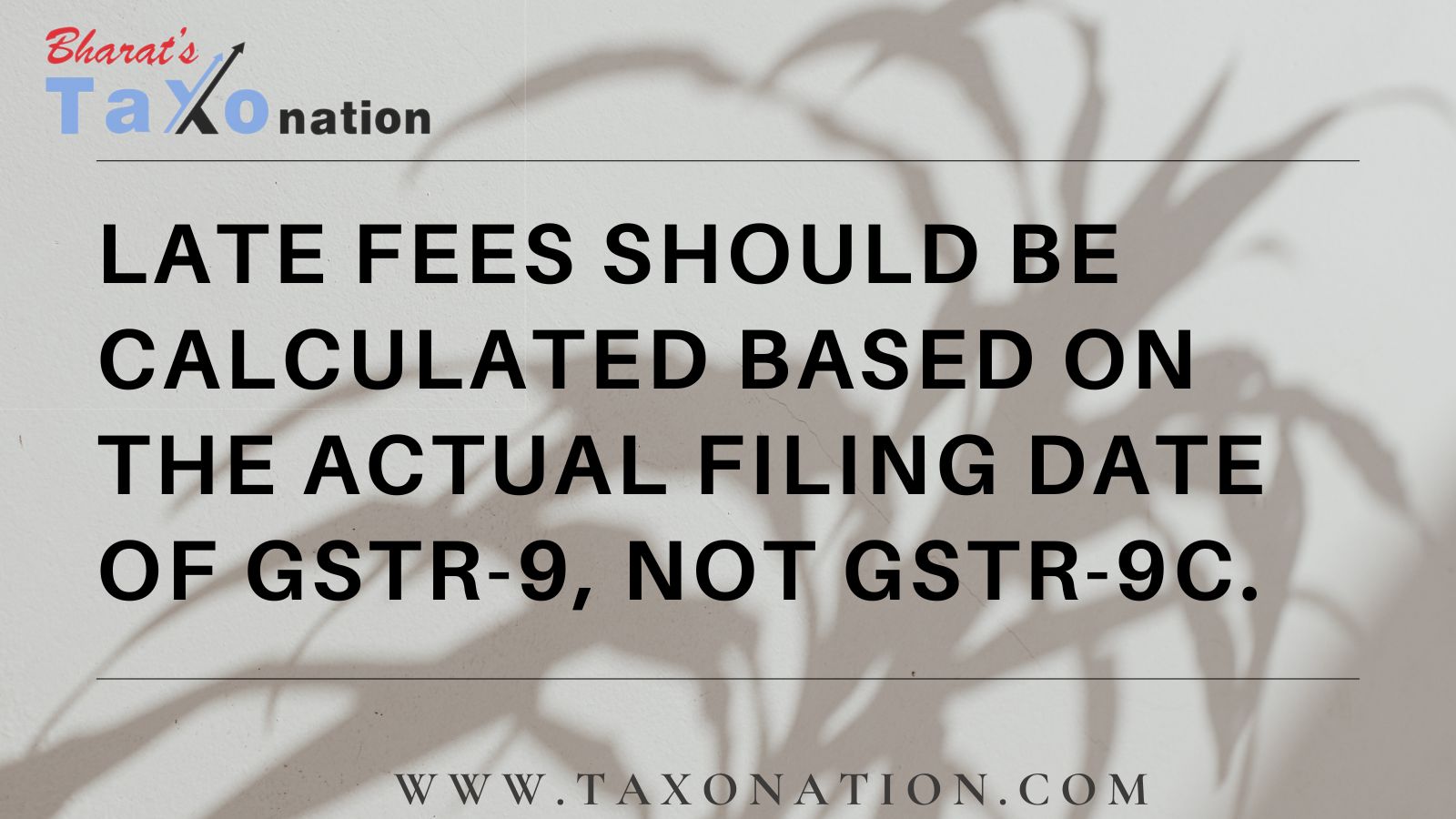Late fees should be calculated based on the actual filing date of GSTR-9, not GSTR-9C.
06 May, 2024
21105 View
A recent court case concerning late fees levied on GSTR-9 annual return filings under the CGST/SGST Acts. The case highlights the issue of considering the filing date of the reconciliation statement (GSTR-9C) for calculating late fees on the annual return (GSTR-9) itself.
Background:
Multiple petitions challenged the government's practice of calculating late fees for GSTR-9 based on the filing date of GSTR-9C. The petitions argued that these fees should be calculated based on the actual filing date of GSTR-9.
Key Points from the Case:
- The petitioners filed GSTR-9 returns for specific financial years belatedly.
- Late fees were already paid for these belated GSTR-9 filings.
- The government demanded additional late fees based on the GSTR-9C filing date.
- The petitioners argued that the amnesty scheme introduced by the government should apply to their case.
Reasoning for Petitions:
- The petitioners and others had filed GSTR-9 returns within extended deadlines provided by the government.
- Late fees were already paid for the belated GSTR-9 filings.
- Considering the GSTR-9C filing date for additional late fees creates an undue burden.
Court's Observations on GSTR-9 and GSTR-9C:
- GSTR-9C is an annual GST reconciliation statement that reconciles figures reported in GSTR-9 with audited financial statements.
- Previously, GSTR-9C applied to businesses with a turnover exceeding Rs. 2 Crore. Now, it applies to those exceeding Rs. 5 Crore.
- Before 2021, GSTR-9C required an auditor's certification. Now, taxpayers self-certify.
- The court noted the recent amendments (effective August 1, 2021) that:
- Removed the requirement for audit reports for most businesses.
- Made GSTR-9C mandatory for businesses with a turnover exceeding Rs. 5 Crore.
Court's Decision:
- The court found the notices demanding late fees based on GSTR-9C filing to be unjust.
- The government introduced an amnesty scheme waiving late fees exceeding Rs. 10,000 for non-filers of GSTR-9 (including the years in question).
- The petitioners filed GSTR-9 before the amnesty scheme began.
Court's Order:
- The court allowed the petitions, meaning the notices demanding late fees based on GSTR-9C filing were quashed.
- However, the petitioners cannot claim a refund for the late fee already paid above Rs. 10,000.
Conclusion:
This case highlights the recent changes to GSTR-9C filing requirements and the government's amnesty scheme. The court's decision provides relief to businesses facing late fee demands based on GSTR-9C filing, especially when they filed GSTR-9 within extended deadlines and before the amnesty scheme.
Topic-Anishia Chandrakanth, Proprietrix, M/S. Acs Technologies, Saloom Trading, Hashar Abdulkalam, Fathima Cashew Industries, B. Anilkumar, Abdul Salam Shihansha, Choice Supermarket Versus The Superintendent, Central Tax and Central Excise, Audit Circle - 1, Thiruvananthapuram, The Central Board of Indirect Taxes and Customs, The State of Kerala
Citation-2024 TAXONATION 820 (KERALA)
CLICK HERE TO READ FULL CASE LAW.

Comment:
Post An Query
Due Dates
BookMark
Send Email
BookMark
Send Email